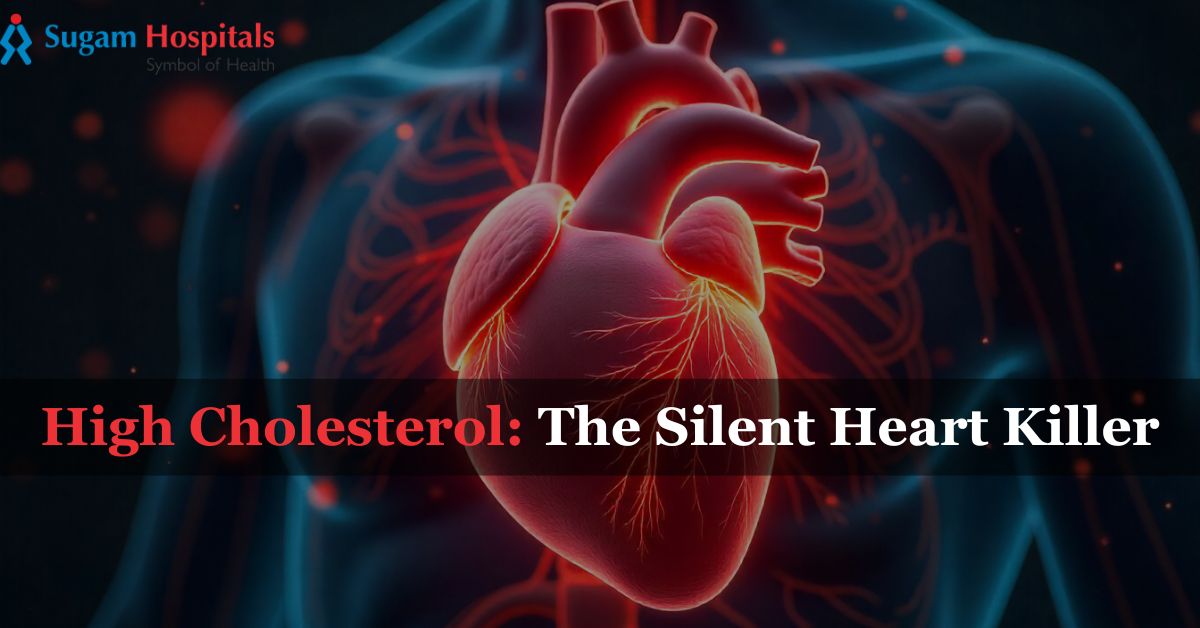High Cholesterol: The Silent Heart Killer

High Cholesterol: The Silent Heart Killer
September 1, 2025 by adminCholesterol is often viewed as a negative thing, but it is important to recognize that it is an essential substance in your body. Cholesterol is found within every cell and it helps produce hormones, vitamin D, and bile acids needed for digestion.
But if cholesterol gets too high, it can pose a silent risk and increase the risk of heart disease, stroke, and cardiovascular disease.
Understanding Cholesterol
Cholesterol is transported in the blood by lipoproteins. Low-density lipoprotein (LDL) is commonly known as “bad” cholesterol because when it is high in level, it can cause plaque to build up in arteries and impair blood flow.
High-density lipoprotein (HDL), on the other hand, is known as “good” cholesterol because it helps to remove excess cholesterol from the blood. An overall balance between the two is key to your heart health.
Why High Cholesterol Often Goes Undetected
One of the most treacherous features of high cholesterol is the fact that it often has no symptoms until serious damage is done. Many people can unknowingly feel perfectly well while the arteries are narrowing and causing huge risk for cardiovascular events.
This is why routine screening with your doctor is so very important, especially for patients over 30 or those that have personal or family histories of heart disease, or who have lifestyle risk factors such as being sedentary, bad diet, obesity, etc.
Factors Contributing to Elevated Cholesterol
Cholesterol levels are affected by many factors. For example, eating a diet high in saturated fats and trans fats can raise LDL cholesterol dramatically. Other lifestyle habits such as little or no exercise, smoking, and excess alcohol consumption can also contribute to your overall cholesterol level.
We must not forget genetics either: some families simply have high levels of cholesterol that often cause early heart disease if not treated, called familial hypercholesterolemia.
Health Risks Associated with High Cholesterol
High cholesterol is closely associated with atherosclerosis, a condition characterized by the build-up of plaque in your arteries. Atherosclerosis can lead to coronary artery disease, angina, heart attacks, and strokes.
But high cholesterol does not only affect the heart; it can also affect the brain, where high cholesterol can increase the risk of cognitive decline and boost your risk of stroke over time. The risk for cognitive decline and stroke can be a silent progression, which is why it is important to manage your cholesterol proactively.
Preventing and Managing High Cholesterol
Lifestyle modification and medications only if deemed necessary, are what prevention and management is all about. A diet high in fruits, vegetables, whole grains, and lean protein can reduce LDL.
Regular physical activity, such as walking or cycling, improves HDL cholesterol. Limiting tobacco and limiting alcohol will also improve heart health. Sometimes statins or other cholesterol-lowering medications will be warranted to keep levels in a normal range.
Regular Monitoring is Key
Blood testing in a hospital environment such as urine provides the only way to confirm cholesterol levels, as well as identify risk earlier rather than later. Most healthcare providers recommend lipid profiles every four to six years for healthy adults and every 1 or 2 years with risk factors.
Given the chronicity of hyperlipidemia, earlier detection means greater opportunity for interventions and time for preventive measures that may be unlikely to cause serious long term damage to the heart.
High cholesterol is not as overtly evident as some other conditions, but it can be deadly when not addressed. We need to be vigilant and make careful lifestyle choices with coordinated medical care, to protect our heart health. There are certainly higher risks around cholesterol, if you think you have some cholesterol, or risk for heart disease, getting a proper consultation from a trusted Cardiology Hospital In Chennai will offer full evaluation, treatment and follow up options for your individual health needs.

